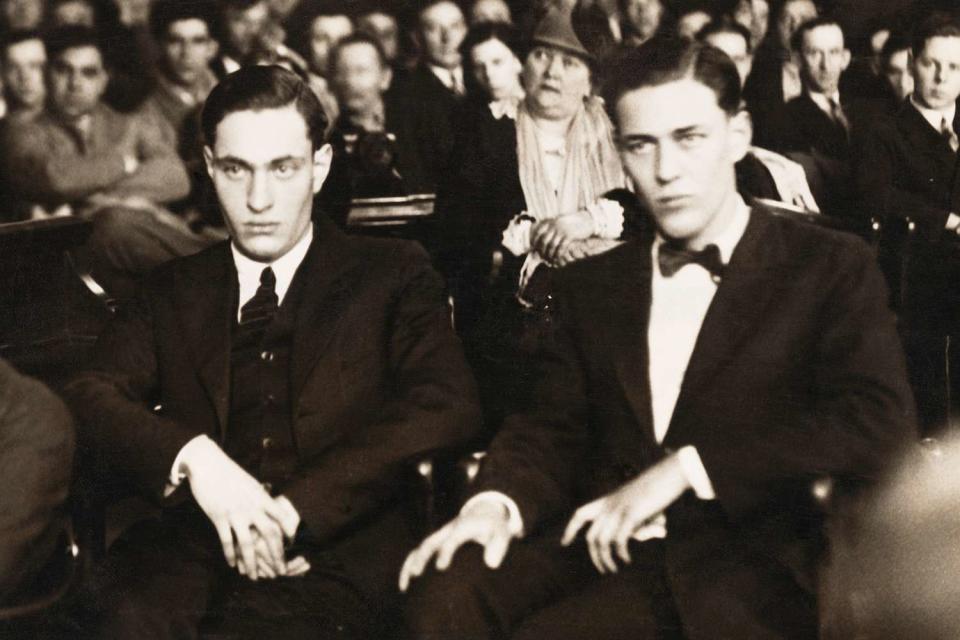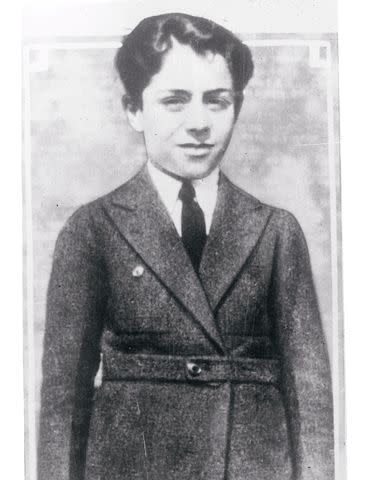Leopold and Loeb Tried to Get Away with 'Crime of the Century' 100 Years Ago. A Simple Mistake Got Them Caught
Nathan Leopold and Richard Loeb ultimately confessed to the brutal murder of 14-year-old Bobby Franks

George Rinhart/Corbis via Getty
Nathan Leopold, left, and Richard LoebThe murder of a 14-year-old Chicago boy committed by two former child prodigies from wealthy families is not the only case to have been dubbed “the crime of the century.” But it was perhaps the first.
May 21, 2024 marks 100 years since friends Nathan Leopold, then 19, and Richard Loeb, 18, decided they wanted to commit the "perfect crime" that they could get away with, and by doing so demonstrate their impressive intelligence.
Their victim was Bobby Franks, a neighbor of Loeb’s, who also came from wealth. Both the killers and the victim lived in Kenwood, a neighborhood on the South Side of Chicago.
According to their confession letters, Leopold and Loeb picked up Franks as he walked home from school. They persuaded him to get in their car by asking him about a tennis racket Loeb had seen him use.
Franks was killed by a blow to the head with a chisel. The pair then dumped the teen’s nude body in a culvert. But their plan to collect a ransom from Franks’ family and get away scot-free went awry.

Bettmann Archive/Getty
Bobby FranksThe pair inadvertently left behind a crucial piece of evidence when Leopold dropped a pair of specially-made glasses near the location of the body. The glasses were subsequently linked to Leopold, who was arrested along with his partner in crime. Both young men admitted to murdering Franks and showed little remorse in their detailed confessions to Chicago authorities.
The Associated Press reported at the time that both Leopold and Loeb came from wealthy families and were very well-educated. According to a Northwestern University database, Loeb had already graduated from the University of Michigan, while Leopold was studying at the University of Chicago.
Want to keep up with the latest crime coverage? Sign up for PEOPLE's free True Crime newsletter for breaking crime news, ongoing trial coverage and details of intriguing unsolved cases.
Leopold in particular was influenced by the German philosopher Friedrich Nietzsche and his idea of “Übermenschen,” or, superior men who were above the law. This influence was brought up at sentencing by Clarence Darrow, the pair’s legendary defense attorney, whose hours-long closing argument was considered key to avoiding the death penalty.
“[Leopold] believed in a superman,” Darrow said. “He and Dickie Loeb were the supermen. There might have been others, but they were two, and two chums. The ordinary commands of society were not for him.”
The case captivated the public, which was shocked by the senseless nature of the crime. The Leopold and Loeb murder inspired several works of art, including plays, books and films, and even provided inspiration for the Alfred Hitchcock film Rope.
Leopold and Loeb were ultimately spared the death penalty after pleading guilty and were instead sentenced to life plus 99 years in prison. Loeb was stabbed to death by a fellow inmate in 1936, while Leopold was ultimately paroled in 1958. He died in 1971 at age 66.
For more People news, make sure to sign up for our newsletter!
Read the original article on People.

